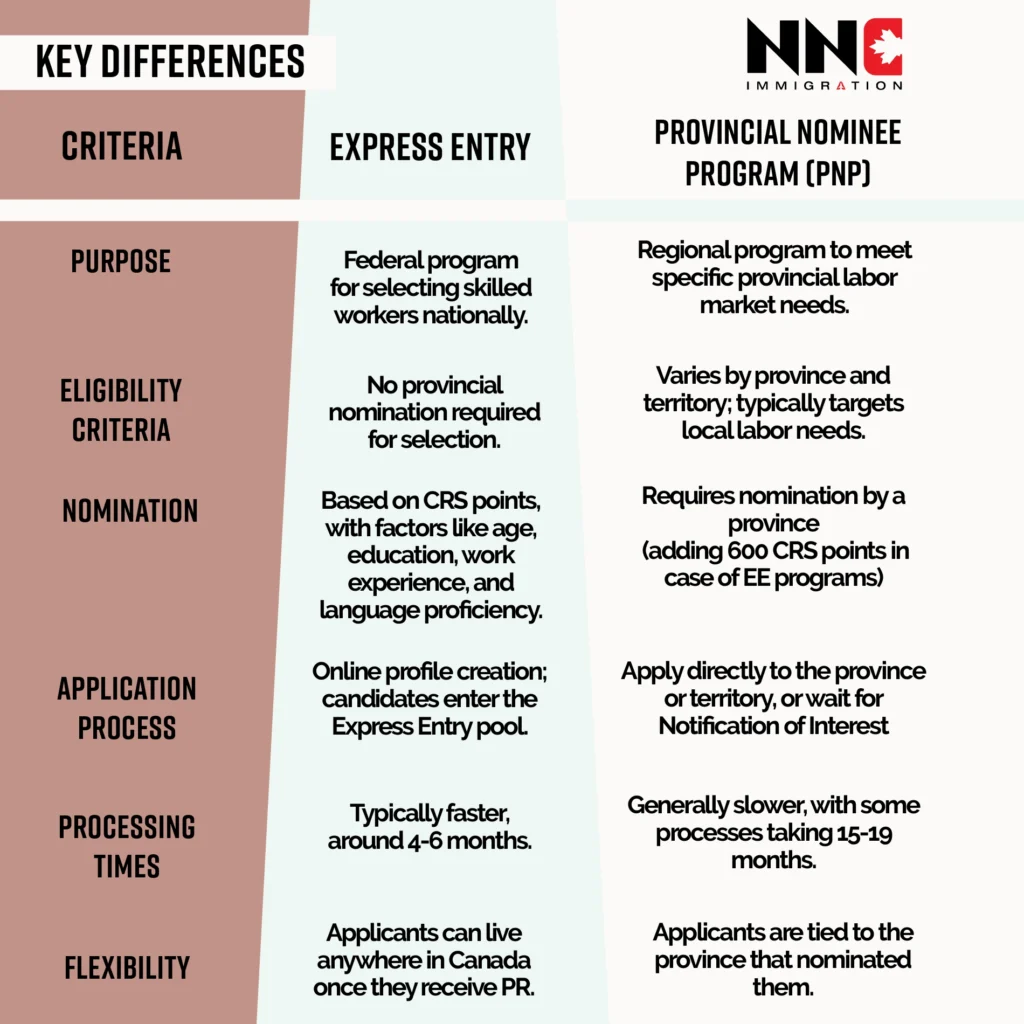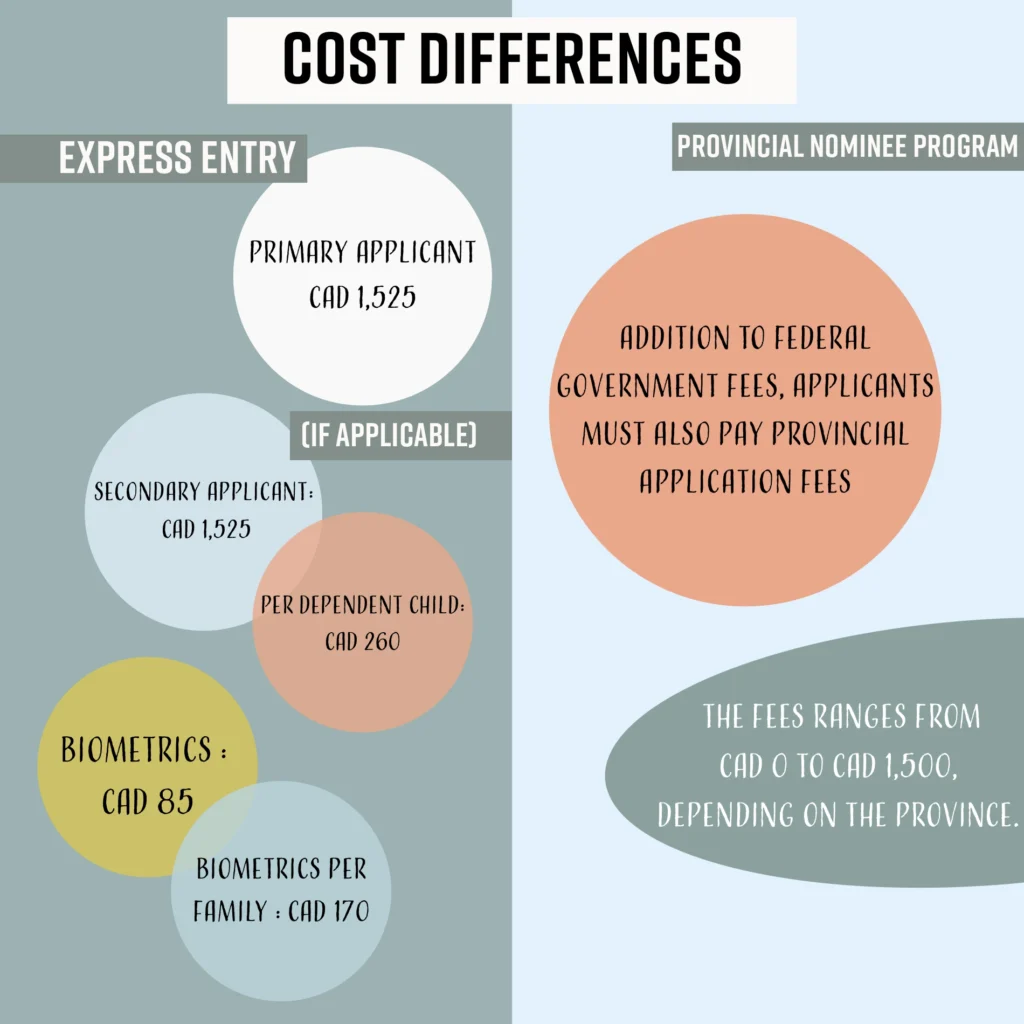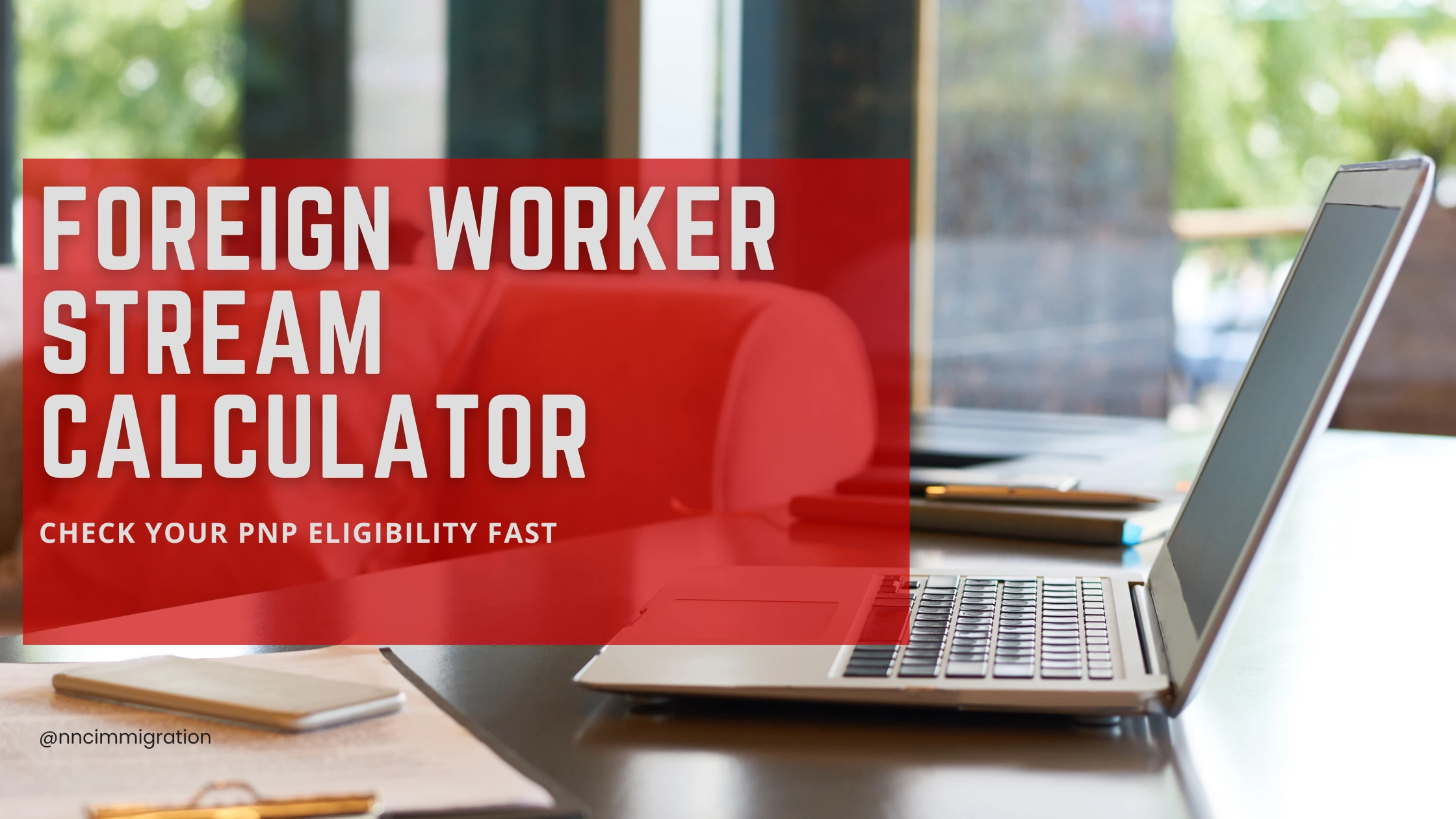What is the difference between PNP and Express Entry: Which Pathway is Best for You?
Canada is one of the top destinations for immigration due to its excellent quality of life, employment opportunities, and social benefits like universal healthcare and education. For those looking to move to Canada, there are two primary pathways to achieve Canadian Permanent Residency (PR): the Express Entry system and the Provincial Nominee Program (PNP).
Express Entry is a federal system that selects skilled workers to live anywhere in Canada based on their CRS score. At the same time, the PNP allows specific provinces to nominate candidates with skills that match their regional job market needs. Both pathways can lead to Canadian permanent residency, but they operate differently depending on your profile and where you want to live.
While both programs can help skilled workers settle in Canada, they differ in several ways. In this blog post, we will discuss the difference between Express Entry and PNP to help you choose the right pathway.
What is the Express Entry System?
The Express Entry program is a federal immigration system Citizenship Canada uses to manage the applications of skilled workers who want to immigrate to Canada. The Express Entry system covers three main immigration programs:
- Federal Skilled Worker Program (FSWP)
- Federal Skilled Trades Program (FSTP)
- Canadian Experience Class (CEC)
Applicants who qualify for any of these programs can create an Express Entry profile and enter the Express Entry pool. The Comprehensive Ranking System (CRS) ranks applicants based on factors such as age, education, work experience, and language proficiency. Candidates with higher CRS scores are more likely to be invited to apply for permanent residency through regular draws conducted by Immigration, Refugees, and Citizenship Canada (IRCC).
What is the Provincial Nominee Program (PNP)?
The Provincial Nominee Program (PNP) is another pathway to Canada PR, but unlike the Express Entry system, the PNP is managed by individual provinces and territories in Canada. Each province or territory has its own PNP streams that are designed to meet specific economic immigration needs. Provinces can nominate applicants who have the skills and experience that match their local labor market demands.
Some provinces align their PNP with the Express Entry system, which allows candidates to receive additional points in the CRS if they receive a provincial nomination. Other PNP streams operate independently of Express Entry, meaning applicants must apply directly to the province.
Key Differences Between Express Entry and PNP

How Do Express Entry and PNP Work Together?
Although Express Entry and PNP are different, they can work together to increase your chances of permanent residency. Candidates in the Express Entry pool can also apply to PNP streams aligned with Express Entry. If you receive a provincial nomination, it adds 600 CRS points to your profile, practically guaranteeing that you will receive an invitation to apply for PR in the next draw.
For example, if your CRS score is lower than the cutoff for Express Entry draws, securing a provincial nomination will boost your score by 600 and increase your chances of being selected for Canadian immigration.
Application Process for Express Entry and PNP
Express Entry Application Process:
- Create an Express Entry Profile: Submit your profile with information on factors such as age, education, work experience, and language proficiency.
- Enter the Express Entry Pool: Your profile is ranked based on your CRS score.
- Receive an Invitation to Apply (ITA): If your score is high enough, you’ll be invited to apply for PR.
- Apply for Permanent Residence: Once invited, submit the required documents and pay the application fees.
- Processing: Wait for IRCC to process your application, which typically takes 4-6 months.
PNP Application Process (Non-Express Entry):
- Choose a Province: Select a province based on your skills and job market opportunities.
- Check Eligibility: Review the eligibility requirements of the PNP streams you are interested in.
- Submit an Expression of Interest (EOI) or Direct Application: Apply to the specific province.
- Receive a Nomination: If the province nominates you, you receive a nomination certificate.
- Apply for Canadian PR: Submit your PR application through IRCC using your nomination.
- Processing Times: PNP applications typically take longer, ranging from 15 to 19 months for non-Express Entry PNPs.
Pros and Cons of Express Entry and PNP
Pros of Express Entry:
- Faster Processing Times: PR applications are processed in 4-6 months.
- No Job Offer Requirement: You don’t need a job offer to qualify.
- Flexibility: You can live and work anywhere in Canada after receiving PR.
- Comprehensive System: Evaluates applicants on multiple factors, giving many candidates a chance to qualify.
Cons of Express Entry:
- Highly Competitive: You need a high CRS score to get selected.
- Limited CRS Boost: Without a provincial nomination or job offer, boosting your CRS score can be challenging.
Pros of PNP:
- More Program Options: Over 80 PNP streams cater to a wide range of skills and experience.
- Lower CRS Requirements: Some PNPs have lower CRS score thresholds, making them accessible to more candidates.
- Provincial Focus: PNP is great for applicants with ties to specific provinces or those in high-demand professions in certain areas.
Cons of PNP:
- Longer Processing Times: Non-Express Entry PNP applications can take up to 19 months.
- Geographic Limitation: You are typically required to live and work in the province that nominates you.
Application Costs for PNP and Express Entry
When applying through the Express Entry system, applicants need to pay the following fees:
- Primary Applicant: CAD 1,525
- Secondary Applicant (if applicable): CAD 1,525
- Per Dependent Child (if applicable): CAD 260 per child
- Biometrics : CAD 85
- Biometrics per family : CAD 170
For PNP, in addition to federal government fees, applicants must also pay provincial application fees, which vary by province. These fees range from CAD 0 to CAD 1,500, depending on the province.

Which Pathway is Better for You? Express Entry vs PNP
The choice between PNP and Express Entry depends on your situation:
- Express Entry is ideal for those who meet the eligibility requirements and have a high CRS score, as it offers faster processing and freedom to live anywhere in Canada.
- PNP is better for candidates with lower CRS scores, specific skills in demand in certain provinces, or those who have ties to a particular region. It also works well for those with job offers or family connections in a specific province.
Conclusion
Both the Express Entry and Provincial Nominee Program (PNP) offer valuable pathways to Canadian permanent residency, but they differ in terms of speed, requirements, and geographic flexibility. Express Entry is best for those seeking a quick and flexible route, while PNP is more suitable for candidates who want to settle in a specific province with a lower CRS score. Assess your eligibility and goals carefully before deciding which pathway is best for you.



